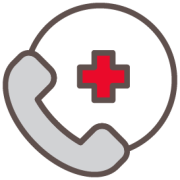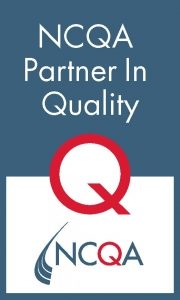Suicidality, Self-Harm, and Safety Planning
Resources for supporting youth with safety problems including suicidality and self-harm behaviors.

Screening & Assessment Tools
Ask Suicide Screening Questions: A brief validated tool for use among both youth and adults approved by The Joint Commission for all ages. Includes training materials, clinical pathway, script for nursing, a parent handout, videos, and other resources. Instrument is available in 13 languages.
C-SSRS: The Columbia Protocol, also known as the Columbia-Suicide Severity Rating Scale (C-SSRS), supports suicide risk assessment through a series of simple, plain-language questions that anyone can ask. Website includes supporting resources including online training modules. Available in English and Spanish on the website; other languages available by contacting the organization.
Therapy Tools & Patient Handouts
Children’s National CASD Local Crisis Resources Handout: Handout for families listing mental health crisis resources in DC, Maryland, and Virginia.
Family Handouts on Crisis Prevention and Response: Includes family handouts – see pages 9-11 for “Crisis Prevention Plan Aid,” “Crisis Prevention Plan,” and “General Home Safety Recommendations After A Child Crisis Event.”
Interactive Online Safety Plan: Interactive version of the Brown-Stanley Safety Plan. Users can email, text, or download completed plan.
In the Moment Coping Skill Toolbox from CBT+: One-page handout for kids on distress tolerance skills that can be used without materials or preparation (e.g. positive self-talk, grounding techniques).
99 Copings Skills Handout from BoysTown: One-page handout for teens of coping skills ideas.
Distress Tolerance Skills for Adolescents: Handout for adolescents on distress tolerance skills. Based on DBT content, e.g. Rathus and Miller (2018) DBT Skills Manual for Adolescents.
What is DBT for adolescents?: YouTube video for families giving an overview of DBT for adolescents from UCSF Department of Psychiatry. 8-minutes long, the video is a hand-drawing cartoons on a white board and narration is by a female psychologist.
notOK app: “notOK App”® is a free digital panic button to get you immediate support via text, phone call, or GPS location when you’re struggling to reach out. For iOS and Android.
CalmHarm App: Calm Harm is an award-winning app developed for teenage mental health charity stem4 by Clinical Psychologist Dr. Nihara Krause, in collaboration with young people, using principles from the evidence-based Dialectical Behaviour Therapy (DBT).
Treatment & Pharmacology Guides
Suicide: Blueprint for Youth Suicide Prevention: The American Academy of Pediatrics (AAP) and American Foundation for Suicide Prevention (AFSP), in collaboration with experts from the National Institute of Mental Health (NIMH), created this Blueprint for Youth Suicide Prevention as an educational resource to support pediatric health clinicians and other health professionals in identifying strategies and key partnerships to support youth at risk for suicide.
AACAP Suicide Resource Center: Clinician resources from the American Academy of Child and Adolescent Psychiatry.
Virginia Mental Health Access Program Guide for Promoting Child and Adolescent Behavioral and Mental Health in Primary Care (VMAP Guidebook): The VMAP Guidebook is a compilation of evidence-based practices, up-to-date resources, and practical knowledge specifically geared toward pediatric and adolescent health care providers.
Depression Care Guide: Care guide for pediatricians from Seattle Children’s Hospital and the Washington Physician Access Line.
Managing and Treating Suicide Risk and Non-Suicidal Self-Injury (NSSI): Clinical Tips: Two-page summary of clinical tips from the University of Washington for managing suicidality and non-suicidal self injury.
Webinars for Providers
Pediatric Health Network Behavioral Health Initiative Presentations: Webinar entitled “Safety planning and Suicide Prevention in Pediatric Primary Care” presented May 2022.
Applying Zero Suicide in Pediatric Care Settings: This webinar “addresses the application of clinical pathways for outpatient suicide care in pediatric behavioral health and the development and maintenance of a caring contacts texting program for a pediatric population.”
Understanding Adolescent Self-Injury: Resilience Breaks is a series of webinars for Maryland pediatricians from BHIPP.
Psychiatric Emergencies: What Pediatricians Need to Know; Suicide Risk Assessment in Primary Care: Monthly webinar series for pediatricians from the ACCESS Mental Health Connecticut child mental health access program.
Depression and Suicide Screening; Assessing Suicide Risk in Youth; Suicide Safety Planning: Educational webinar series for primary care providers on pediatric and perinatal mental health from the MC3 mental health access program at the University of Michigan.


